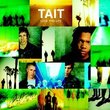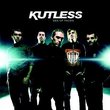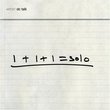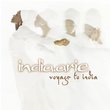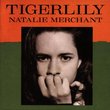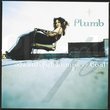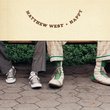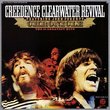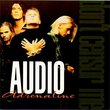| All Artists: Kevin Max Title: Stereotype Be Members Wishing: 1 Total Copies: 0 Label: Forefront Release Date: 8/28/2001 Genres: Pop, Rock, Christian & Gospel, Gospel Style: Pop & Contemporary Number of Discs: 1 SwapaCD Credits: 1 UPCs: 724382529026, 0724382529057, 724382529057 |
Search - Kevin Max :: Stereotype Be
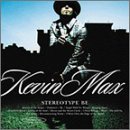 | Kevin Max Stereotype Be Genres: Pop, Rock, Christian & Gospel, Gospel
Some singers leave indelible marks. There's no mistaking the trademark vocals of U2's Bono, Matchbox 20's Rob Thomas, and dc Talk's Kevin "Kmax" Smith. On his first solo effort, Kmax lays down a progressive rock groove tha... more » |
Larger Image |
CD DetailsSynopsis
Amazon.com Some singers leave indelible marks. There's no mistaking the trademark vocals of U2's Bono, Matchbox 20's Rob Thomas, and dc Talk's Kevin "Kmax" Smith. On his first solo effort, Kmax lays down a progressive rock groove that incorporates elements of Eastern mysticism, industrial music, and eclectic pop. But regardless of the sound, there's no mistaking that voice. Smith and producer-musician Adrian Belew never overwhelm you with the multiple studio effects they do employ, but all the while, the music allows Smith's enigmatic vocals to take center stage. Tracks that shine include "Return of the Singer," "Excellence," and "I Don't Belong," the last of which features lyrics that strongly indict hero worship of any sort and display Smith's disdain for being called a "rock star." Humility aside, the song also has a fantastic, catchy chorus and seems like a sure-fire radio hit. But those are at a minimum on Stereotype Be, which is more about style and experimentation than radio-friendly pop. --Michael Lyttle Similar CDs
Similarly Requested CDs
|
CD Reviews"Like a cherub left to gather moss" human_rain | The Mouth of Zardoz | 05/28/2003 (5 out of 5 stars) "I'm a man who loves variety and originality in the music that I listen to. Quite frankly, I'm bored with most of the musical selections that are mainstream and filling up 99% of the radio. It seems that most popular music these days are all filtering through the same basic sounds and lyrics, and they never stray far from formula. For this reason, I'm constantly searching up and down CD stacks, on a sort of Mecca for music that is both original and provocative. As a result, I've managed to find a wide variety of some CDs (usually at the bottom of the stacks) that aren't quite mainstream but much more interesting than the typical "MTVfare." Such a Mecca brought me to a little-known CD by an artist named Kevin Max which caught my eye immediately by the image on the CD case: A man whose face was covered mostly in shadow, wearing what appeared to be a plastic, polyester suit. The title--Stereotype Be--also seemed appealing. Anyway, it was enough for me to pick up the CD. A singer whose last name was Max, with a plastic, polyester suit? I just had to know.I wasn't sure what to expect when I popped "Stereotype Be" into my CD player. I try not to create expectations on an artist until I have heard their work. What followed with Kevin Max was a terrific music experience--one of the best that I've had in a long time. From his unique tenor voice and wild vibrato, to the lyrics that were nothing short of poetry, to the often bizarre but always intriguing experiments that Max tackles musically, "Stereotype Be" creates a musical experience that is refreshing and groundbreaking. If more musicians pushed musical boundaries and raised the bar the way Max does with this CD, I'd listen to the radio more often. Max's voice is unlike anything I have ever heard, and perfect for the strange music that he presents here. His voice is a difficult one to describe; it's an odd mix of U2's Bono, John Lennon, and a spring going, "Booooooiiiiing." He's got a wide vibrato that often sounds like it is spinning out of control, yet he somehow manages to stay in control at all times. Truly, it's one of the most defined, original music voices I've ever heard, and I can think of no other description for it. It can only be heard to be understood better. Musically, Max has a very provocative work here. He seems to blend a little bit of every genre, so that his music is impossible to define clearly. From Middle Eastern chants and bellows ("Return of the Singer," "Existence," "Dead End Moon") to European rock that sounds like the best of John Lennon ("On and On," "Shaping Spaces"), to rap, ballads ("Be"), and edgy declarations (Max clearly pokes fun at the media's perception of celebrities in "Deconstructing Venus"), Max spins an enticing web of different genres and styles to create a musical experience that stands on its own. Some of the reviews here have complained that he sounds a little too much like U2 and others. Granted, I can see the comparison, and certainly the likes of U2, The Beetles, and Peter Gabriel are influences on Max. However, I found that he was able to take those influences and blend them and combine them in a style and sound that is uniquely his own. Max spends most of the time cramming so many different influences into the same song that the listener is only reminded of the greatness of these other musical pioneers and Max's utilization of their styles instead of being distracted by a comparison that screams, "Rip off!". By now, I have listened to the album multiple times, and I am still amazed by all of the musical styles from all over the world that Max throws into each song. There is always some new style happening, whether it be Max murmuring words in the background behind the music or some interesting fusion of American, European, and Middle Eastern sounds. At the same time, however, no song on the album seems so overwhelmed with detail that it becomes too busy to enjoy.If that is not enough, Max's lyrics are constantly beautiful, ranging from haunting to soulful to uplifting to just plain weird. Jim Morrison once said that he became a musician because he refused to be a starving poet; the same could be said for Max. His lyrics are poignant and subtle, drawing up some striking images (do images get more powerful and thought-provoking than "Like a cherub left to gather moss?"). I think that the lyrics are key to understanding what Max is trying to do here with his work, as they seem to take us on a journey of Max's own self-discovery, from a searching soul to bad life experiences to finally lessons learned and confidence in his identity. On the other hand, the lyrics for most of the songs are intentionally subtle and up for interpretation. Certainly, overcoming stereotypes is a theme (hence the title), as is his undying devotion for his significant other, in love songs that kick the pants off of anything you've heard on the radio in terms of originality and honesty ("You are the sunshine. I am the rain that falls in line. You are a candle. And I am your darkness. ... On and on, we dance until the song is off the radio."). To put it bluntly, I am blindsided by the genius of this album, and the musical boundaries that it pushes. I haven't heard anything like it, before or since, and I find it difficult to categorize Max's work into a specific genre. I do find it odd, however, that most places I have looked have labeled it "gospel" music. Certainly, there are some gospel influences here, but a closer match would be experimental music, or world music, or even new-age music. After a bit of research, I learn that Max is of the Christian faith, but his music is so diverse and original, and his lyrics so broad and subtle, I would certainly not label his music "Christian." There are influences from different beliefs and religions from all over the world here, from Judea/Christian to more Middle Eastern and Asian philosophies. There is a beautiful hidden track which is a proclamation to God, but the song conjures up so many images and musical styles from all over the world, I would say that the song is a celebration of faith in general. Max admits this idea himself: After searching around on the internet, I found that he told the New York Times Upfront Magazine, "My music is for a Buddhist to pick up and still enjoy, for an atheist But it is there to prod and ask some questions: What's my worldview? What do I believe in, and why do I believe it?" Certainly his music succeeds in this goal, though it seems that his religious position has unfairly spiraled his amazing talent down into obscurity and has tragically "stereotyped" his work into a genre that he clearly has no business being categorized in. Perhaps this is a good thing--I would rather be an artist with a small but loyal group of fans who truly appreciate my music than have a gigantic, temporary following that moves from one popular music style to the next. As it stands, "Stereotype Be" is a powerful example of music making at its most original, and I am glad that my musical Mecca led me to Max's CD." Kevin Max the artist, not Kevin Max the dcTalker Danel F. Griffin | from the Dead End Moon | 08/30/2001 (5 out of 5 stars) "Kevin Max's first solo album works if for no other reason than for its boldness. Musically, it's a kaleidascope, ranging from Arabian-like chants to pop influence, a few poetry readings with music playing in the background, and then there are some sounds that I don't think I've ever quite heard of....very experimental. Lyrically, I've rarely heard better. His lyrics are not much different from the poetry he's written: deep, probing, honest, and up for mass interpretation. He writes about many issues in this: putting aside stereotypes that society has placed on us (Deconstructing Venus, Be), battles with insecurity, (Union of Souls, I Don't Belong), searching for one's self (Existance), the love he has for his wife (On and On) and a need for God in the blindness of life (You, Blind). My personal favorite song, however, is Dead End Moon, a song about a deep need for human companionship that will not come (possibly because of the theme of the work: stereotyping? Just my interpretation). I think one of the most interesting aspects of this ablum, actually, is the fact that God seldom makes an appearance directly, but it is impossible to suggest that He in not an intricate part of this album. This could easily be labled as the Book of Ruth of Christian music. Instead of directly connecting his work to God in this album, Max instead centers on the daily struggles of life, in relationships, temptations, and insecrutities. Some of these areas include God directly, some do not, but what Max does here is present the human condition in total, unremitting honesty, and when he does that, God working in and through his life becomes clear. Consider this as a day in the head of Kevin Max the Artist, and while God is not always mentioned, he is always present. As a Christian, I can appretiate what KMax is doing here, and non Christians listening to this will understand that there is indeed something much less superficial here than what they are used to listening to (equate it to a Christian being asked "What is it about you? What do you have that I don't?", just because of his presence, not nesessarily because of anything he's said). The lyrics are also up to interpretation: More than a handful of them use the metaphor of a romantic relationship to symbolize a greater meaning. I encourage you to look beyond the symbols and get into the meat of this album, which is all about finding happiness in who you are and in who God intends you to be. To reiterate my title, keep in mind when listening that this is NOT a dc Talk album. The only simularity you will find is Max's blaring vocals. dc Talk is a brilliant Christian group that experiments with new sounds and deep lyrics. Very much a mainstream Christian band....THE mainstream Christian band. dcTalk offers us the work of three musicians coming together as one band to share with us their ministry. But this is something very much different: it is Kevin Max opening his heart as an artist beyond his role of dc Talk. Indeed, he is giving us a great gift in this project, and one which neither he nor his partners Toby or Michael could offer in a dc Talk ablum: His very self, unabashed and holding nothing back. And it is a magnificent thing to behold." It's a real shame. John | UK | 06/21/2006 (5 out of 5 stars) "It's a real shame that the Christian community is so close-minded that they couldn't accept such a superb and artful album. This is by far the best solo album by any of the dc Talk members - when I listened to it, I thought, "This could do just as well in the mainstream market" - and that is exactly what the problem was with its sales. It was marketed towards Christians - who shrugged it off because, as Kevin Max himself said, it didn't fit in with their own pre-conceptions of what religious music should be - and no one in the mainstream even heard of it. It was only advertised through the Christian media outlets.
This album cost $200,000 to make (expensive for any Christian album) and it sounds so great with its mixing and effects and background vocals that I wouldn't be surprised to see it on another pop artist's resume. Kevin Max has the vocal power of Jeff Buckley. The album sounds like U2 meeting Buckley via Elton John, Pink Floyd and, dare I say, Axl Rose (the falsetto is strikingly reminiscent, but Kevin Max doesn't have the gritty-ness of Axl). The lyrics are not overtly Christian and in fact Kevin Max said this album could be equally appreciated by a Buddhist or an atheist - and I agree. I'm not trying to bash the Christians who avoided this album - I'm just saying I think they misunderstood it. Kevin Max sees the potential of Christian music being more "open" - to interpretation and ideas - and I think it's important, because as he said - the Christian music industry is like a "ghetto" right now - there is so much more potential. So many Christian artists could appeal to the mainstream and deliver the same message in a more subtle way. "Stereotype Be," the title, refers - I'm sure - to the stereotypes of Christians and their music. Kevin Max was trying to blow the door off here and open up the industry to something fresh and different - and he succeeded beautifully - but people just didn't get it. They saw it as some pop album disguised as a Christian album, and because of Kevin Max's "bad boy" reputation they misunderstood the love-song lyrics as some kind of anti-Christian thing. Boy, were they wrong. It's a real shame this album flopped - it's the best I've heard from any Christian artist in the last decade - and it contained ideas and lyrics and musical stylings that will probably never be heard in any Christian album ever again. Some people didn't dig it. Okay. For them, there's always generic Christian rock like Tait. It is an artful and hypnotic experience." |

 Track Listings (15) - Disc #1
Track Listings (15) - Disc #1
